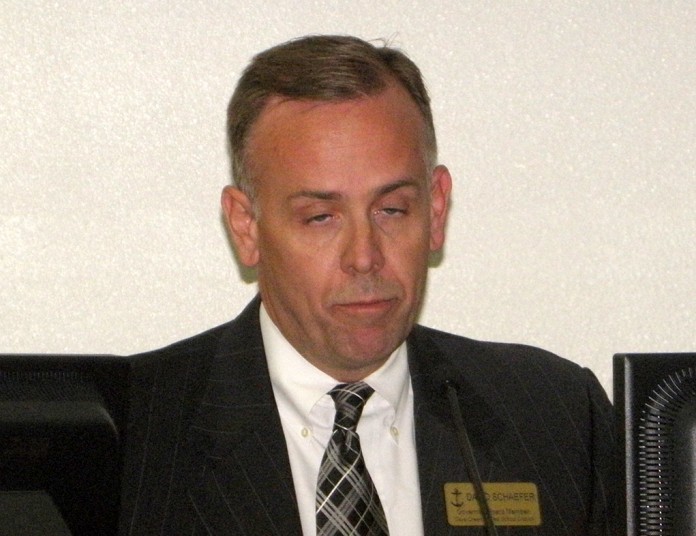CCUSD93 – On Aug. 23, Attorney Timothy Lasota filed a complaint on behalf of outgoing Cave Creek Unified School District board member David Schaefer challenging school board candidate J. Scott Brown’s nomination petitions.
A hearing was held on Aug, 29, during which the facts of the case were undisputed.
Brown signed the verification section on the back of one of his petitions and then photocopied it prior to circulating the petitions.
He submitted 27 pages of nomination petitions with 264 signatures, including over 200 signatures on petitions Brown photocopied with his verification on the back prior to people signing them.
In other words, he circulated petitions that were signed on the back with his photocopied signature, claiming to have verified those signing his petitions were qualified electors before they actually signed his petitions.
Brown said since he was going to be circulating petitions himself and would be verifying all the signatures himself, he filled out the back of one form and then photocopied the form to save the time of filling out the backs of each form individually.
Maricopa County Superior Court Judge Randall H. Warner took the matter under advisement and issued his ruling on Aug. 30.
Warner cited A.R.S. § 16-351(B)(1), which requires all petitions to be signed by the circulator.
However, he noted A.R.S. § 16-321(D) requires that the circulator “verify that each of the names on the petition was signed in his presence on the date indicated, and that in his belief each signer was a qualified elector who resides at the address given as the signer’s residence on the date indicated.”
Warner stated, “As a matter of law, Mr. Brown’s photocopied signatures are not verifications. One cannot verify that a petition was signed in his presence before the petition was signed. Pre-verifying petitions, whether by photocopying or by an original signature, violates A.R.S. § 16-321(D).”
Brown argued the statute governing initiatives and referenda expressly invalidates signatures made after the circulator signed the petition and if the legislature intended such a requirement for nomination petitions, it would have included that provision in the statutes governing them.
Warner found Brown’s argument unpersuasive, claiming the statute requires circulator to verify facts – “the petition was signed in his presence on the date indicated” and “in his belief each signer was a qualified elector who resides at the address given.”
Because the word “verify” means to represent the existence of facts, Warner stated “so the provision cannot be rationally read to authorize before-the-fact verifications.”
Citing Black’s Law Dictionary, defining verification as “confirmation of correctness, truth, or authenticity, by affidavit, oath or deposition,” Warner went on to say just because statutes governing initiative and referendum have more specific requirements than the nomination petition statutes, does not merit construing A.R.S. § 16-321(D) contrary to its plain language.
Asserting the verification requirement is not designed to assist electors but rather to ensure the petition’s validity, Warner said Brown’s failure to properly verify signatures could not be considered a technical violation and, because Brown did not substantially comply with A.R.S. § 16-321(D), ruled the challenged petitions and signatures on them invalid.
Although Brown has five calendar days to appeal, he said he will not be appealing Warner’s decision.
The bigger question is why Schaefer, who is not seeking reelection, challenged Brown’s petitions. Is it because it could lead to a potential majority on the school board that was not hand-picked by Superintendent Debbi Burdick?





